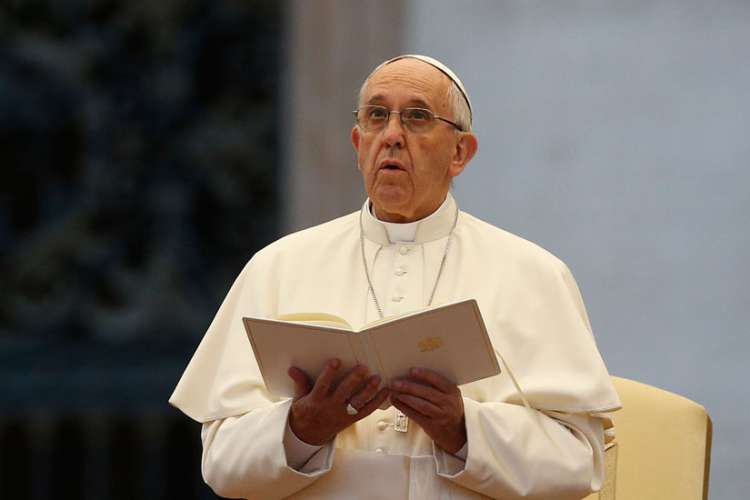That’s the message conveyed by Pope Francis during his homily at Tuesday’s morning Mass celebrated in the Casa Santa Marta. A community united in Christ, the Pope said, is also a courageous community.
Reflecting on the day’s reading from the Acts of the Apostles, Pope Francis points to the one word that sums up the sentiments and lifestyle of the very first Christian community: harmony. Theirs is a life in communion, based on shared values and shared wealth for the benefit of all.
Harmony vs contrived coexistence
But, Pope Francis is careful to point out that the harmony which bound together the Church’s first Christians came as a gift of the Holy Spirit. It was not a man-made or contrived form of tranquil coexistence.
"We can negotiate some sort of peace ... but harmony is an inner grace that only the Holy Spirit can grant. And these communities lived in harmony. And there are two signs of harmony: there is no one wanting, that is, everything was shared. In what sense? They had one heart, one soul, and no one considered as his own any property that belonged to him, but everything was shared in common amongst them. None of them was ever in need. The true 'harmony' of the Holy Spirit has a very strong relationship with money: money is the enemy of harmony; money is selfish.”
Proof of the first Christian community’s harmony, the Pope says, was shown in the fact that they freely gave of their own goods “so that others would not be in need."
God and money: two “irreconcilable” masters
The Pope draws from the day’s reading the virtuous example of Barnabas who sells his field and gives the proceeds to the Apostles. And in contrast, Francis cites another passage from Acts: that of Ananias and Sapphira, a couple who sell their field and pretend to give the entire proceeds to the Apostles but who in fact, keep part of the money for themselves. That lie costs them dearly; both die on the spot.
God and money are two “irreconcilable” masters, Francis stresses. And, he warns against confusing "harmony" with "tranquility:"
"A community can be very tranquil…things are fine ... But it is not harmonious. I once heard a wise thing from a bishop: 'There is tranquility in the diocese. But if you touch on a certain problem - this problem or that problem - war breaks out.’ This is negotiated harmony, and this is not of the Spirit. Let’s say that it’s a hypocritical harmony like that of Ananias and Saphira and what they did."
The Spirit, generosity and courage
Francis concludes, encouraging a re-reading of the Acts of the Apostles and their portrayal of the first Christians and their life together. "We will do well," he says, to understand the importance of their fraternal generosity and how to bear witness to such a lifestyle in our daily lives.
"The harmony of the Holy Spirit grants us the generosity to possess nothing as our own, while there is someone in need.”
The harmony of the Holy Spirit, he adds, also fortifies us with courage. “‘With great power the Apostles bore witness to the Resurrection of the Lord Jesus, and great favor was accorded them all:’ namely, courage. When there is harmony in the Church, in the community, there is courage, the courage to bear witness to the Risen Lord."

